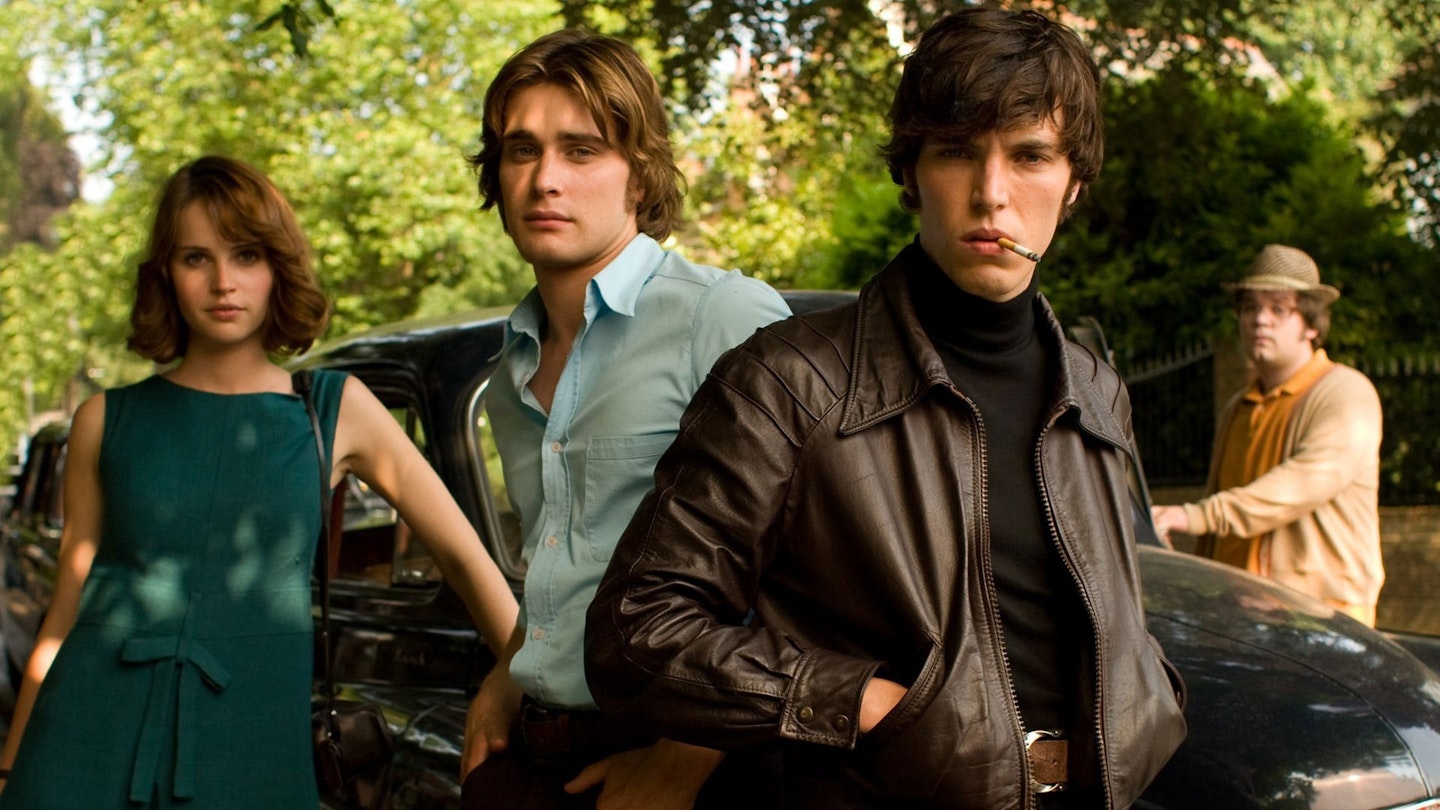One of the many things that American cinema does so much better than our own is to mythologise its youth. Whether it’s because US teens have more disposable income or a car culture that makes scene entrances and exits more exciting, American filmmakers — especially early in their careers — have embraced and explored youth, and in particular young manhood, in ways in which British filmmakers, for the most part, have chosen to ignore.
We might have never visited the Modesto of George Lucas’ American Graffiti, the Texas of Peter Bogdanovich’s The Last Picture Show or the fictional Shermer, Illinois that featured in many of John Hughes’ films, but as landscapes for cinematic growing pains, they feel far more familiar than Reading or Stockport. And when British filmmakers do revisit their early adult years, it’s much more about the gritty reality than the shiny myth. From That’ll Be The Day to Quadrophenia to Trainspotting to This Is England, British cinema has always seemed to prefer dwelling on the darker underbelly of youth culture. All the miserable young dudes...
Which makes Ricky Gervais and Stephen Merchant’s Cemetery Junction all the more refreshing. Echoing the likes of Saturday Night Fever, Diner and, more recently, Adventureland, Gervais and Merchant’s first feature together (Merchant was not creatively involved in The Invention Of Lying) emerges as a kind of Berkshire Graffiti, taking the fun, swagger and sweetness of the traditional American youth picture and applying it to a smalltown British milieu. It is a setting that may be recognisable to anyone who grew up in a pre-Margaret Thatcher Britain, but rather than setting events in an eternally grim Winter Of Discontent, Gervais and Merchant have opted for an idealised endless summer where the sun always shines in which to race through those important rites of passage: job interviews, first loves, sussing that your parents have foibles and the age-old ritual of realising you’re too old to fart in a friend’s face.
At the heart of the movie is a portrait of three friends — cool, good-looking Freddie, troubled (but good-looking) Bruce and group idiot Snork, so named for his close resemblance to a Banana Splits character — captured at a time when the friendship is evolving. Freddie has started listening to classical fuddy-duddy Vaughan Williams, has a spanking new leather file for his new job at Vigilant Life Assurance and has grown out of fist-fights and defacing signs with genitalia. Boosted by three hugely likeable central performances from Christian Cooke, Tom Hughes and Jack Doolan, Cemetery Junction is particularly good on the joys of teenage time-wasting and mucking about, the ease of friendships formed in childhood and why they are so difficult to leave behind.
In this respect, what follows will feel largely familiar. The impression of being trapped in a small town (although cinematographer Remi Adefarasin, who lensed Match Point and Elizabeth: The Golden Age, shoots Reading in such a pretty way you do wonder why anyone would want to escape), a smart young guy growing apart from his friends, and a girl who stands in for the big, wide world outside are all well-thumbed chapters in the teen movie handbook, and the movie doesn’t really deviate from that — it has little in the way of narrative surprises up its tank top.
But Gervais and Merchant make the well-worn path immensely engaging, throwing in some stinging dramatic beats, and an affection for both the characters and the predicaments of youth.
If Cooke gets the job and the girl, it is Hughes’ Bruce who gets the real dramatic meat, as he hits out at his father for not putting up a fight after his mother left, and a confrontation between Bruce and friendly family copper Sgt. Davies (Steve Speirs) in a prison cell crackles with electricity. In contrast, Jack Doolan’s Snork is squarely in comic sidekick territory, sporting a topless vampire tattoo and circling a tentative relationship with his train station co-worker.
If all this sounds a long way from the closely observed grim minutiae of Wernham Hogg, there are still connecting threads. Throughout The Office there was a virulent strain of ironic ’70s playground humour — Tim to Gareth: “Did you see the film Gaylords Say No last night?” “No” — and, like a spiritual prequel, Cemetery Junction doesn’t shy from the period’s casual racism and sexism. The scenes in Freddie’s home — Gervais is effective as Freddie’s factory worker father — articulate a time when smart working-class kids didn’t really have the option of university or backpacking (“There’s parts of Reading you ain’t seen,” says Freddie’s mum when he expresses a desire to travel), where three generations lived in one house, where phrases like “half-caste” and “jungle tits” were common dinner-table verbiage and images of starving kids in Africa had no Live Aid “Who’s gonna drive you home?” frisson around them. Gervais and Merchant don’t overwork the ’70s backdrop, which is both a blessing and a curse: while they don’t overdo the period trappings — there’s no-one walking round like glam rockers — they don’t really say anything about the decade. It’s well observed, but none of the social points are really pressed.
Yet perhaps a more overt link to The Office can be found embodied in its heroine. Like Dawn Tinsley, Felicity Jones’ Julie is sparky and attractive, a suppressed dreamer imprisoned in a relationship with a boorish bully (Matthew Goode goes from A Single Man to full-on sexist slimeball mode) and yet in Freddie finds a soulmate who provides a potential way out. In sharp contrast to the lively dinner-table banter of Freddie’s family, the scenes of Julie’s home life are an exercise in quiet, chilly desperation. As Julie’s long-suffering mother, Emily Watson may have little screen time but she conveys in tiny strokes a complete marriage. Ralph Fiennes excels here as well — a moment where he completely ignores her as she dutifully pours his tea is absolutely heartbreaking.
At the centre of the movie is a lengthy set-piece as a suited and booted Freddie takes Bruce and Snork to a work dinner-dance in pursuit of free booze and loose birds. As proved numerous times during The Office, Gervais and Merchant are masters at realising the grimness of the work social function, the ’70s milieu adding a further patina of misery. Within one sequence, we get embarrassing small talk (an anecdote about bread), broad comedy (a great Stephen Merchant cameo), a musical interlude (Snork rocks out to Slade) and, best of all, a sublime golden handshake speech from Fiennes’ creepy self-made man about an employee who had worked for Vigilant man and boy. A brilliant, simple piece of emotive writing, it’s a poignant counterpoint to the broad teen antics.
Gervais has likened the film to Bruce Springsteen’s Thunder Road — the song ends with the euphoric, “It’s a town full of losers/And I’m pulling out of here to win” — and the film shares the song’s attitude, obviousness, flash and heart. But Cemetery Junction trumps Springsteen in one important regard: it can answer the age-old question of just why Noddy wears a hat with a bell on it. The Boss just wouldn’t have a clue...




